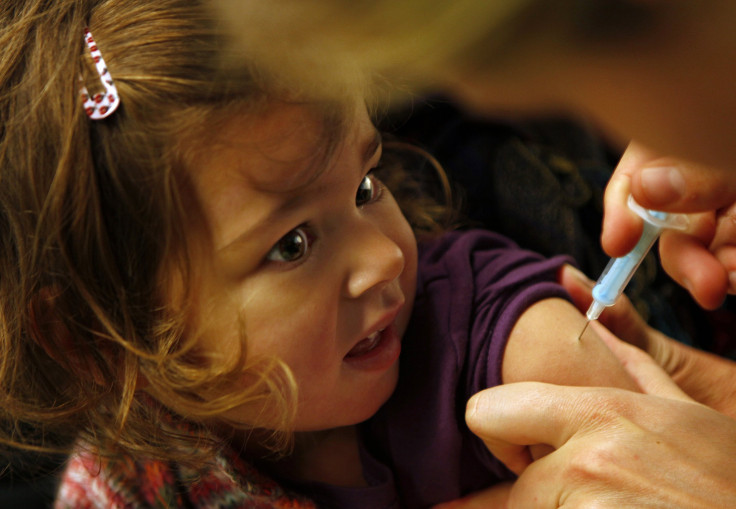Whooping Cough Vaccine Less Effective After Five Doses

Whooping cough vaccine becomes less effective in protecting children after their fifth shot, says new research.
Pertussis, or whooping cough, causes uncontrollable and violent coughing, making it difficult for a person to breath. The disease is caused by a bacterium called Bordetella pertussis and is a contagious disease.
The DTaP vaccine is given to children younger than 7 to develop immunity to whooping cough as well as diphtheria and tetanus.
The study involved more than 220 children who were diagnosed with whooping cough between 2006 and 2011. Medical records of these children were matched against 3,000 healthy children who didn't have whooping cough during that period . Researchers from the Kaiser Permanente Vaccine Study Center in Oakland then matched this data to another set of 6,000 children that acted as a control group.
The researchers found that children who were positive for whooping cough had received their fifth dose earlier that year. They also found that there was a 42 percent reduction in the vaccine's effectiveness per year after the last dose.
In July this year, the Centers for disease Control and Prevention (CDC) reported a similar study about the waning effectiveness of the DTaP vaccine. The agency maintains that it is still the most effective strategy to prevent pertussis in children.
This year has seen the worst whooping cough outbreak in 50 years.
In 2010, 27,550 cases of whooping cough were reported in the U.S., according to the CDC. The agency adds that many cases of whooping cough go unreported. As of August 2012, 46 states including Washington DC had reported a rise in the number of whooping cases.
The study was published in the New England Journal of Medicine.



























